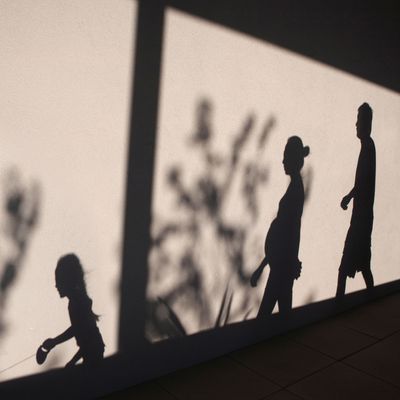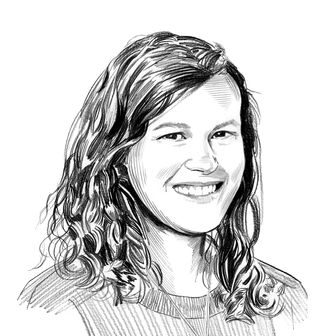
Lauren had never considered freezing her eggs until a few years ago, when she attended an information session at work. She lives in the Bay Area, where she works for one of the small but growing number of companies that subsidize the cost of elective egg-freezing for employees. At the time, she was in her late 20s, and though she’d always wanted to have kids, it still seemed a long way off. But listening to the doctors and other women at the session, she was struck by their description of egg-freezing as “an insurance plan for your fertility.”
The American Society for Reproductive Medicine has said that egg-freezing is a relatively new procedure, and that there are still many uncertainties about its effectiveness. So far, not many women who have frozen their eggs have actually ended up using them — and of those who have, the success rate is low. The procedure typically costs several thousand dollars, making it prohibitively expensive for most women. But since her company would cover most of the cost, Lauren felt like she might as well take advantage of it, and decided to start the process last year, when she was 30. She told us about how her original egg-freezing plan changed course, the way it’s impacted how she thinks about her future, and whether the pandemic will influence her plans to start a family.
When I first learned that my company covered egg-freezing, I was 29. I’d been dating my partner for a little over two years. We knew we were going to get married at some point, and I’ve always known that I want to have kids, but neither of us was in a rush. Honestly, my fertility wasn’t really on my mind at the time.
One of my friends had fought for the company to offer egg-freezing as a benefit, so it didn’t feel to me like this company-instigated thing where they were trying to get women to delay having kids — though I wouldn’t doubt that’s the case at some companies. There was an information session about it, and there were some women there who had done it. Some of them were in their 20s, and they said they felt like it was a good decision for their future. Others were nearing an age where it might be harder to get pregnant and they didn’t have a partner who they were ready to have kids with. They were saying that the best time to freeze your eggs is before you’re thinking about it.
I ended up deciding to do it in January 2019. I’d been getting really bad migraines around my menstrual cycle, and my doctor suggested that I try going off birth control. I thought, if I’m going to go off the Pill anyway, then I might as well freeze my eggs now, and then after that I’ll get an IUD, since I still felt like I didn’t want to have kids for the next few years. I knew I probably wouldn’t be working at this company forever, so I felt like I should take advantage of the opportunity while I could.
The doctor made me feel like my situation was ideal — I was 30 and healthy, and doing it preventatively, rather than at a time when I knew my reserves were already low. I was hoping that I could just do one cycle and get enough eggs to be done.
Once I got over the mental hurdle of giving myself a shot of hormones a few times a day, it was a pretty easy process. I didn’t have any side effects besides feeling really bloated and big. In a strange way, I found the whole process to be comforting and soothing. I stopped drinking, and I tried to eat really healthy, because it felt like I was responsible for creating something that could eventually be a member of my family.
It ended up taking a lot longer than I thought it would because the first two retrievals didn’t yield as many eggs as we’d been expecting. The doctors weren’t really able to give me a clear answer about why, and it was pretty frustrating. For the third round, I saw a different doctor who waited until later in my cycle to do the retrieval, and I had much better results. That doctor also recommended that I freeze embryos instead of eggs, because he said they have a better chance of surviving the freezing process, so you have a better chance of conceiving later.
Before that, I had been thinking about egg-freezing as something I was doing for myself — potentially for more freedom in my career, or in my personal decisions. Freezing eggs is sort of, like, no strings attached. Freezing embryos is really different because you wouldn’t use them if you weren’t with your current partner. So it was less of a personal decision, and more of a commitment conversation. My partner and I had been talking for years about marriage, and having a family someday was already part of our plan. We bought a house together before we were married, so we don’t really care about the order of things. Deciding to freeze embryos did feel different, but it was an easy decision.
It took about five months, but in the end we were able to freeze 12 embryos. I didn’t expect to feel this amount of relief and security. I feel lucky — like I’m rich with fertility. I almost feel a little guilty because the likelihood that I’ll actually have to use the frozen embryos is probably pretty low. It makes me feel really privileged that I had the opportunity to go through three rounds of egg-freezing, which is incredibly financially difficult for most people. I have friends who are trying to get pregnant and are having issues, and I already have this backup plan.
Even if I don’t end up using the embryos, I still think it’s worth it. More than anything, I feel much freer to decide when I want to have kids than I did before. I feel like I can choose to have kids when I want to, and not feel pressure because I’m worried about waiting too long, or because I’m trying to do the math of how many kids I want to have and how far apart they need to be spaced before I get to an age where it might be harder. That’s really freeing as a woman.
When all of this shelter-in-place stuff started, I started thinking more about having kids. There were so many unknowns, and I wasn’t thinking about where I wanted to travel in the next few years; I wasn’t thinking about social things — I was just thinking, like, What are the fundamental things that I want in my life? I was having dreams about being pregnant. I started thinking, If this lasts all year, should I just get my IUD removed and start trying now?
Knowing that right now the pandemic doesn’t have an end point, I do feel wary of being pregnant in times that are completely different. Now that the initial stress of the lockdowns has passed, I feel like I’m where I was before — which is, I’m not ready yet, but I could be ready at any point.
This has been edited and condensed for clarity.
No Expectations is a series about the pandemic’s impact on family planning and parenthood. Have a story to share? Email erica.schwiegershausen@nymag.com and tell us a little about your situation.





